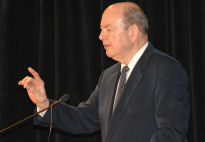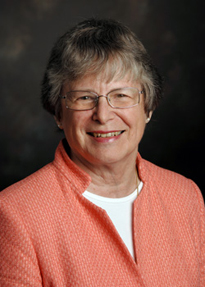First-year lawyers look to mentors for guidance
July 10, 2008
Kimberly DeCarrera knew not long after starting law school she wanted to run her own practice.
The Georgia State University College of Law graduate couldn't predict at the time, however, that she would be setting up her business and family law practice just a few months after passing the bar exam.
DeCarrera was one of 2006's newly-minted lawyers who, in 2007, began a year of mentoring under the Transition Into Law Practice Program. As she struck out on her own, G. Roger Land, the attorney she clerked for while in law school, became her mentor.
"Working with Roger, I got information about billing systems and how to deal with clients and general information on how to run practices," she said. "It was a nice resource to have - somebody to call for certain things."
At the Georgia Supreme Court's direction, the TILPP was established in 2005 by the state bar's Standards of the Profession Committee, chaired by College of Law Board of Visitors Chairman John T. Marshall. Last month, after a three-year pilot period, the bar's Board of Governors made the program permanent.
The one-year mentoring program, which is mandatory for first-year lawyers with a few exceptions, offers those new to the field someone to lean on as they adjust to the profession. Marshall said that while mentors, who are certified by the state supreme court, are free to craft their own programs to suit their needs and those of their mentees, senior lawyers are expected to take their junior colleagues to local bar association meetings, introducing them to practitioners in their area and generally take them under their wing.
"Beginning lawyers in Georgia have to only pass the bar and they can then hang out a shingle," said Marshall. "That's really jumping off the deep end, hoping you can swim."
Georgia State Law Professor Marjorie Girth, who has sat on the Standards Committee since its inception in the 1990s, believes the mentoring program will be a benefit not only to newly-minted lawyers, but to the profession in Georgia overall. She said it gives senior lawyers a framework from which to devote time to developing the next generation of practitioners.
in the 1990s, believes the mentoring program will be a benefit not only to newly-minted lawyers, but to the profession in Georgia overall. She said it gives senior lawyers a framework from which to devote time to developing the next generation of practitioners.
"In the mid-‘90s, people sensed the level of professionalism was slipping," she said. "Senior lawyers didn't feel they could take the time to mentor their new colleagues."
Girth said she hopes new lawyers gain two things from their year with a mentor: "The first thing is an early immersion into the expectations of the profession.
"The second thing is the hope ... that by working with a mentor for a year, a professional relationship based on that mentoring would continue," she said.